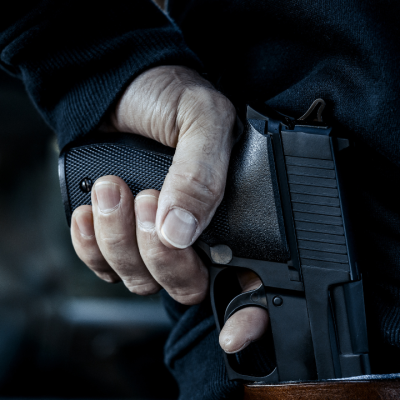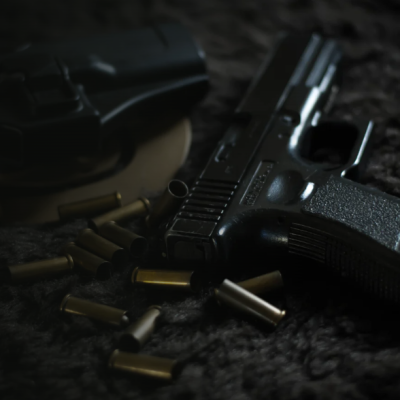Why EDC Training Is a Must
Strapping on a firearm for everyday carry (EDC) is only half the equation. The other half? Knowing how to use it effectively when it matters most. Too many gun owners assume that just having a weapon makes them safer, but without proper training, carrying a gun can do more harm than good.
Owning a firearm and visiting the range every now and then isn’t enough. In a real-world encounter, hesitation or fumbling can cost you everything. EDC training ensures that when faced with a threat, your response is automatic, efficient, and precise.
This isn’t just about shooting skills—it’s about survival. EDC training helps you:
-
Draw quickly and cleanly from concealment
-
Make accurate shots under stress
-
React decisively in high-pressure scenarios
-
Improve situational awareness to avoid danger before it starts
Having a gun doesn’t make you prepared. Training does.
Key Skills for Effective EDC
Mastering EDC goes beyond just pulling a trigger. Here are the core skills every concealed carrier needs:
1. Drawing from Concealment
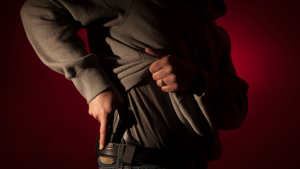
If you can’t access your firearm quickly and reliably, you’re already at a disadvantage. EDC training ensures your draw is second nature.
-
Clearing your cover garment – Whether it’s a jacket, hoodie, or tucked shirt, you need to be able to move it out of the way instantly.
-
Building a firm grip – A bad grip slows you down and throws off your accuracy.
-
Getting on target fast – Your first shot needs to count, especially at close range.
2. Shooting Under Stress
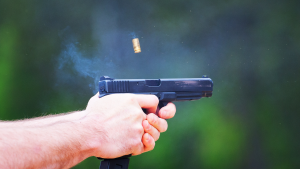
Paper targets at the range don’t shoot back. Real threats won’t give you time to think. Training under pressure helps you build instinctive, accurate shooting habits.
-
Rapid target engagement – Hit your target fast before they can act.
-
Moving while shooting – Standing still makes you an easy target.
-
Shooting with one hand – You may need to fire while using your support hand for defense, opening a door, or protecting a loved one.
3. Situational Awareness & Threat Recognition
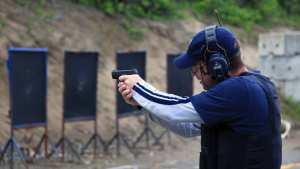
Your gun should be the last resort. EDC training teaches you to read situations early so you can avoid danger whenever possible.
-
Recognizing pre-attack indicators – Learn how to spot trouble before it starts.
-
Scanning your environment – Know your exits, potential cover, and what’s happening around you.
-
Making quick, smart decisions – Sometimes, avoiding a fight is the best move.
4. Reloading and Malfunction Drills
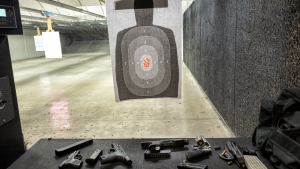
A dead trigger or empty magazine can mean the difference between life and death. Proper EDC training helps you stay in the fight.
-
Speed reloads – Swapping mags efficiently when seconds matter.
-
Clearing malfunctions – Immediate action to fix failures like stovepipes or double feeds.
-
Retention reloads – Keeping a partially loaded mag in case you need those extra rounds later.
How to Start Your EDC Training Journey
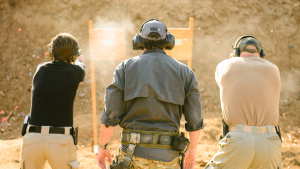
Find a Quality Training Program
Not all firearms training is created equal. A standard CCW class teaches laws and basic handling, but EDC training is about real-world survival. Look for courses that offer:
-
Live-fire drills – Simulating real-life encounters.
-
Stress-based scenarios – Training under realistic pressure.
-
Legal and tactical education – Understanding when and how to act.
Make Training a Habit
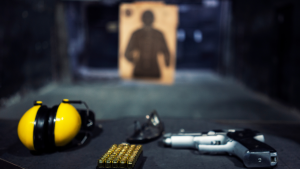
Even the best training course won’t help if you don’t practice regularly. Build a routine that includes:
-
Dry-fire drills – Perfect your draw, grip, and trigger press without live ammo.
-
Live-fire practice – Work on speed, accuracy, and movement.
-
Force-on-force training – Get experience reacting to simulated threats.
Invest in the Right EDC Gear
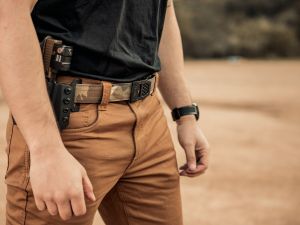
The best skills in the world won’t help if your gear fails when you need it. Choose reliable, high-quality equipment that enhances your ability to respond effectively.
-
A solid holster – Comfortable, secure, and fast to draw from.
-
A sturdy gun belt – Keeps your firearm stable and accessible.
-
Spare magazine carriers – You don’t want to run out of ammo when it counts.
Train Hard. Carry Smart. Stay Ready.
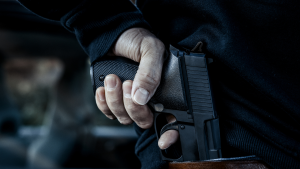
Carrying a firearm is a commitment, not just a convenience. Without the right training, you’re not just unprepared—you’re a liability. Don’t just carry. Train. Because when the worst happens, you don’t want to be the guy who wishes he had prepared better.












